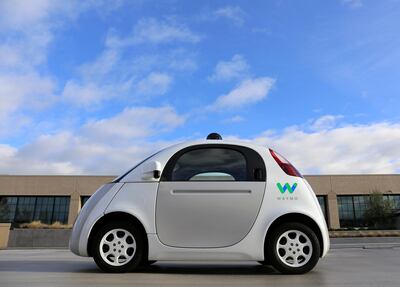Traditionally, an end-of-year recap of 12 months in the world of technology tends to celebrate human ingenuity and all its positive effects. This, however, was not a feel-good year; new gizmos, apps and services tended to be greeted by doubts as to whether they were really for our benefit, or merely for the benefit of the companies who produced them. That kind of cynicism has always existed among industry critics, but this year saw suspicion and concern among people who would normally feel enthused by technological innovation.
That isn’t to say we stopped spending money. Wearable technology – particularly smartwatches – may have fallen short of mass market appeal once again, but public enthusiasm for voice-powered assistants such as Amazon Echo and Google Home continued to grow. Part of that was down to savvy marketing, but there were technological improvements, too, Microsoft claimed this year that its voice-recognition system now has an error rate of just 5.1 per cent – comparable to human transcription – while assistants have simply became better at assisting. Fondness for Apple’s Siri, Amazon’s Alexa and Microsoft’s Cortana grew as deep learning techniques resulted in fewer errors and reduced frustration.
But the genre was by no means flawless. Samsung’s voice assistant, Bixby, was poorly received, while Amazon’s Echo Look, a “hands-free camera and style assistant” offering fashion advice, prompted puzzlement best summed up by Ars Technica’s Jeff Dunn. “The idea of paying $200 [Dh734.5] to be judged on your appearance by a semi-intelligent assistant with a massive stake in getting you to buy new outfits is just nonsensical,” he wrote.
All around us, computers made strides forward in either guessing what we wanted, or doing things on our behalf. The most striking manifestation of this was in Phoenix, Arizona, where Google’s self-driving car project, Waymo, began testing driverless cars without any human supervision. As these kinds of technological leaps were made, voices of caution would regularly sound; not just in terms of human safety, but also the wider issue of decisions being taken by computers and the rationale behind the algorithms that power them.
We must not, critics said, accept algorithms as inherently wise. "[They] are not neutral," wrote Engadget's Chris Ip, "and the reason they're biased is that society is biased." The debate over whether artificial intelligence (AI) will have our best interests at heart, became heated in late July as the outspoken CEO of SpaceX, Elon Musk, publicly voiced his worries over "the risk … to human civilisation" – but Facebook's Mark Zuckerberg dismissed this, assuring the public that for his part, at least, AI was about "making people's lives better".
Facebook, however, would struggle to prove itself as a wholesome benefit to society in 2017, and Google and Twitter didn't fare much better. All three firms were summoned by the United States Congress to testify over Russian influence in the US presidential election last year, and all three admitted that Russian-bought ads had attempted to affect the vote.
Politics was just one strand of concern, alongside the promotion of fake news stories, inappropriate children’s entertainment, the proliferation of online harassment and many others. Blame for this was levelled at the culture of Silicon Valley, from its hell-bent commitment to growth at any cost, to its notable lack of diversity. An illustration of the strength of feeling surrounding this issue came in the form of an essay by Google engineer, James Damore, who questioned the value of diversity in the workplace at great length. He was dismissed by Google, transforming him into both a figure of derision and a cause célèbre overnight.
Away from the controversy, some notable products were making their way into stores. The Samsung Galaxy S8 and the iPhone X were lauded for their design and their capabilities; multiple sensors and powerful cameras transformed these high-end smartphones into potent “augmented reality” devices.
______________________
Read more:
US culture year in review: the year of women breaking their silence
Pop music in review: leftfield chart-toppers and the growth of grime
Year in review: the best, the worst and the weirdest of TV in 2017
______________________
The much-discussed “notch” at the top of the iPhone X was home to an array of sensors that could, according to Apple, enable the delivery of new services and new entertainment; examples included seeing what particular items of furniture might look like in your living room, or placing friends and fictional characters in the same virtual space. That notch also facilitated Apple’s new facial- recognition system, Face ID, prompting debate over the safety and security of facial recognition in a consumer product.
In this particular case, Apple was able to reassure the public that it collected no facial image data, but concern over personal data collection now hovers over every new, cloud-connected product. The question of how much data companies possess and how they store it, is raised every time a security breach hits the news; well-publicised cases in 2017 included Equifax, Yahoo and Uber (which had a stinking year for many reasons, from the potential loss of its London licence to the resignation of its co-founder, Travis Kalanick).
These concerns over the vulnerability of data prompted interest in the amorphous concept of the blockchain, a digitally verified ledger that has found its most famous use in the cryptocurrency Bitcoin. The inability of most of us to understand how the Bitcoin works didn’t stop its value from rocketing towards the end of the year, as investments were simultaneously encouraged and cautioned against.
Bitcoin has engendered a feeling among many of its users, of them not knowing exactly what they're playing with, but that sensation extends across many technological developments this year. As complex questions are raised about the effect of technology on our future, the subsequent debates tend either to be improperly conducted or savagely curtailed; this certainly happened earlier this month, when the US Federal Communications Commission decided to dismantle its rules over net neutrality, paving the way for US internet service providers to prioritise or block particular apps or websites. This, campaigners say, will have a chilling effect on the freedom of the individual. Whether 2018 will see the concerns of individuals prioritised over technological corporations will entirely depend on whether human beings choose to take it lying down, or to stand up and fight.
Company%C2%A0profile
%3Cp%3E%3Cstrong%3ECompany%20name%3A%20%3C%2Fstrong%3ETuhoon%0D%3Cbr%3E%3Cstrong%3EYear%20started%3A%20%3C%2Fstrong%3EJune%202021%0D%3Cbr%3E%3Cstrong%3ECo-founders%3A%20%3C%2Fstrong%3EFares%20Ghandour%2C%20Dr%20Naif%20Almutawa%2C%20Aymane%20Sennoussi%0D%3Cbr%3E%3Cstrong%3EBased%3A%20%3C%2Fstrong%3ERiyadh%0D%3Cbr%3E%3Cstrong%3ESector%3A%20%3C%2Fstrong%3Ehealth%20care%0D%3Cbr%3E%3Cstrong%3ESize%3A%20%3C%2Fstrong%3E15%20employees%2C%20%24250%2C000%20in%20revenue%0D%3Cbr%3EI%3Cstrong%3Envestment%20stage%3A%20s%3C%2Fstrong%3Eeed%0D%3Cbr%3E%3Cstrong%3EInvestors%3A%20%3C%2Fstrong%3EWamda%20Capital%2C%20Nuwa%20Capital%2C%20angel%20investors%3C%2Fp%3E%0A
THE CLOWN OF GAZA
Director: Abdulrahman Sabbah
Starring: Alaa Meqdad
Rating: 4/5
COMPANY%20PROFILE
%3Cp%3E%3Cstrong%3EName%3A%20%3C%2Fstrong%3EKinetic%207%3Cbr%3E%3Cstrong%3EStarted%3A%3C%2Fstrong%3E%202018%3Cbr%3E%3Cstrong%3EFounder%3A%3C%2Fstrong%3E%20Rick%20Parish%3Cbr%3E%3Cstrong%3EBased%3A%3C%2Fstrong%3E%20Abu%20Dhabi%2C%20UAE%3Cbr%3E%3Cstrong%3EIndustry%3A%3C%2Fstrong%3E%20Clean%20cooking%3Cbr%3E%3Cstrong%3EFunding%3A%3C%2Fstrong%3E%20%2410%20million%3Cbr%3E%3Cstrong%3EInvestors%3A%3C%2Fstrong%3E%20Self-funded%3C%2Fp%3E%0A
COMPANY PROFILE
Name: Lamsa
Founder: Badr Ward
Launched: 2014
Employees: 60
Based: Abu Dhabi
Sector: EdTech
Funding to date: $15 million
ABU%20DHABI'S%20KEY%20TOURISM%20GOALS%3A%20BY%20THE%20NUMBERS
%3Cp%3EBy%202030%2C%20Abu%20Dhabi%20aims%20to%20achieve%3A%3C%2Fp%3E%0A%3Cp%3E%3Cstrong%3E%E2%80%A2%2039.3%20million%20visitors%2C%3C%2Fstrong%3E%20nearly%2064%25%20up%20from%202023%3C%2Fp%3E%0A%3Cp%3E%3Cstrong%3E%E2%80%A2%20Dh90%20billion%20contribution%20to%20GDP%2C%3C%2Fstrong%3E%20about%2084%25%20more%20than%20Dh49%20billion%20in%202023%3C%2Fp%3E%0A%3Cp%3E%3Cstrong%3E%E2%80%A2%20178%2C000%20new%20jobs%2C%3C%2Fstrong%3E%20bringing%20the%20total%20to%20about%20366%2C000%3C%2Fp%3E%0A%3Cp%3E%3Cstrong%3E%E2%80%A2%2052%2C000%20hotel%20rooms%2C%3C%2Fstrong%3E%20up%2053%25%20from%2034%2C000%20in%202023%3C%2Fp%3E%0A%3Cp%3E%3Cstrong%3E%E2%80%A2%207.2%20million%20international%20visitors%2C%3C%2Fstrong%3E%20almost%2090%25%20higher%20compared%20to%202023's%203.8%20million%3C%2Fp%3E%0A%3Cp%3E%3Cstrong%3E%E2%80%A2%203.9%20international%20overnight%20hotel%20stays%2C%3C%2Fstrong%3E%2022%25%20more%20from%203.2%20nights%20in%202023%3C%2Fp%3E%0A
Women%E2%80%99s%20T20%20World%20Cup%20Qualifier
%3Cp%3E%3Cstrong%3EUAE%20fixtures%3C%2Fstrong%3E%3C%2Fp%3E%0A%3Cp%3E25%20April%20%E2%80%93%20Ireland%20v%20UAE*%3Cbr%3E27%20April%20%E2%80%93%20UAE%20v%20Zimbabwe**%3Cbr%3E29%20April%20%E2%80%93%20Netherlands%20v%20UAE*%3Cbr%3E3%20May%20%E2%80%93%20UAE%20v%20Vanuatu*%3Cbr%3E5%20May%20%E2%80%93%20Semi-finals%3Cbr%3E7%20May%20%E2%80%93%20Final%3Cbr%3E%3Cstrong%3EUAE%20squad%3A%20%3C%2Fstrong%3EEsha%20Oza%20(captain)%2C%20Al%20Maseera%20Jahangir%2C%20Avanee%20Patel%2C%20Heena%20Hotchandani%2C%20Indhuja%20Nandakumar%2C%20Kavisha%20Kumari%2C%20Khushi%20Sharma%2C%20Lavanya%20Keny%2C%20Mehak%20Thakur%2C%20Rinitha%20Rajith%2C%20Samaira%20Dharnidharka%2C%20Siya%20Gokhale%2C%20Suraksha%20Kotte%2C%20Theertha%20Satish%2C%20Vaishnave%20Mahesh.%3C%2Fp%3E%0A%3Cp%3E*Zayed%20Cricket%20Stadium%3C%2Fp%3E%0A%3Cp%3E**Tolerance%20Oval%3C%2Fp%3E%0A
More from Neighbourhood Watch
Indika
%3Cp%3E%3Cstrong%3EDeveloper%3A%3C%2Fstrong%3E%2011%20Bit%20Studios%3Cbr%3E%3Cstrong%3EPublisher%3A%3C%2Fstrong%3E%20Odd%20Meter%3Cbr%3E%3Cstrong%3EConsole%3A%3C%2Fstrong%3E%20PlayStation%205%2C%20PC%20and%20Xbox%20series%20X%2FS%3Cbr%3E%3Cstrong%3ERating%3A%3C%2Fstrong%3E%204%2F5%3C%2Fp%3E%0A
Inside%20Out%202
%3Cp%3E%3Cstrong%3EDirector%3A%C2%A0%3C%2Fstrong%3EKelsey%20Mann%3C%2Fp%3E%0A%3Cp%3E%3Cstrong%3EStarring%3A%3C%2Fstrong%3E%C2%A0Amy%20Poehler%2C%20Maya%20Hawke%2C%20Ayo%20Edebiri%3C%2Fp%3E%0A%3Cp%3E%3Cstrong%3ERating%3A%20%3C%2Fstrong%3E4.5%2F5%3C%2Fp%3E%0A
Spare
Profile
Company name: Spare
Started: March 2018
Co-founders: Dalal Alrayes and Saurabh Shah
Based: UAE
Sector: FinTech
Investment: Own savings. Going for first round of fund-raising in March 2019
COMPANY PROFILE
Name: Xpanceo
Started: 2018
Founders: Roman Axelrod, Valentyn Volkov
Based: Dubai, UAE
Industry: Smart contact lenses, augmented/virtual reality
Funding: $40 million
Investor: Opportunity Venture (Asia)
The specs
Engine: Four electric motors, one at each wheel
Power: 579hp
Torque: 859Nm
Transmission: Single-speed automatic
Price: From Dh825,900
On sale: Now
How the bonus system works
The two riders are among several riders in the UAE to receive the top payment of £10,000 under the Thank You Fund of £16 million (Dh80m), which was announced in conjunction with Deliveroo's £8 billion (Dh40bn) stock market listing earlier this year.
The £10,000 (Dh50,000) payment is made to those riders who have completed the highest number of orders in each market.
There are also riders who will receive payments of £1,000 (Dh5,000) and £500 (Dh2,500).
All riders who have worked with Deliveroo for at least one year and completed 2,000 orders will receive £200 (Dh1,000), the company said when it announced the scheme.
UAE currency: the story behind the money in your pockets
The candidates
Dr Ayham Ammora, scientist and business executive
Ali Azeem, business leader
Tony Booth, professor of education
Lord Browne, former BP chief executive
Dr Mohamed El-Erian, economist
Professor Wyn Evans, astrophysicist
Dr Mark Mann, scientist
Gina MIller, anti-Brexit campaigner
Lord Smith, former Cabinet minister
Sandi Toksvig, broadcaster
Dust and sand storms compared
Sand storm
- Particle size: Larger, heavier sand grains
- Visibility: Often dramatic with thick "walls" of sand
- Duration: Short-lived, typically localised
- Travel distance: Limited
- Source: Open desert areas with strong winds
Dust storm
- Particle size: Much finer, lightweight particles
- Visibility: Hazy skies but less intense
- Duration: Can linger for days
- Travel distance: Long-range, up to thousands of kilometres
- Source: Can be carried from distant regions
Key facilities
- Olympic-size swimming pool with a split bulkhead for multi-use configurations, including water polo and 50m/25m training lanes
- Premier League-standard football pitch
- 400m Olympic running track
- NBA-spec basketball court with auditorium
- 600-seat auditorium
- Spaces for historical and cultural exploration
- An elevated football field that doubles as a helipad
- Specialist robotics and science laboratories
- AR and VR-enabled learning centres
- Disruption Lab and Research Centre for developing entrepreneurial skills
How it works
1) The liquid nanoclay is a mixture of water and clay that aims to convert desert land to fertile ground
2) Instead of water draining straight through the sand, it apparently helps the soil retain water
3) One application is said to last five years
4) The cost of treatment per hectare (2.4 acres) of desert varies from $7,000 to $10,000 per hectare
How much of your income do you need to save?
The more you save, the sooner you can retire. Tuan Phan, a board member of SimplyFI.com, says if you save just 5 per cent of your salary, you can expect to work for another 66 years before you are able to retire without too large a drop in income.
In other words, you will not save enough to retire comfortably. If you save 15 per cent, you can forward to another 43 working years. Up that to 40 per cent of your income, and your remaining working life drops to just 22 years. (see table)
Obviously, this is only a rough guide. How much you save will depend on variables, not least your salary and how much you already have in your pension pot. But it shows what you need to do to achieve financial independence.
Everybody%20Loves%20Touda
%3Cp%3E%3Cstrong%3EDirector%3A%3C%2Fstrong%3E%20Nabil%20Ayouch%C2%A0%3C%2Fp%3E%0A%3Cp%3E%3Cstrong%3EStarring%3A%3C%2Fstrong%3E%20Nisrin%20Erradi%2C%20Joud%20Chamihy%2C%20Jalila%20Talemsi%3C%2Fp%3E%0A%3Cp%3E%3Cstrong%3ERating%3A%20%3C%2Fstrong%3E4%2F5%3C%2Fp%3E%0A


